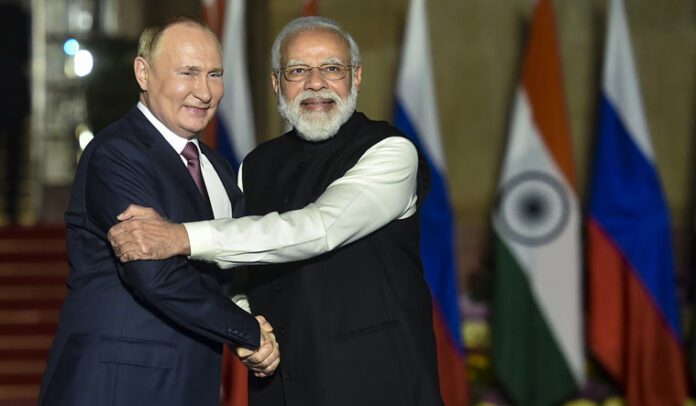In the midst of the ongoing conflict in Ukraine, India has emerged as one of the major beneficiaries of the Western sanctions on Russia. According to reports, India has saved more than 30,000 million rupees (nearly 343 million euros) in the importation of Russian crude oil since the start of the war. This represents a significant increase in the country’s reliance on Russian oil, which accounted for only 1% of Indian purchases before the conflict began.
India is highly dependent on imports of fossil fuels, with 85% of its energy needs met by products from Saudi Arabia, Iraq and Russia. As Western sanctions against Russia began to take effect, Indian refineries began to purchase crude oil from Russia below the cap of $60 imposed by Western nations. This has led to a significant increase in purchases, with Russia now serving as the second-largest supplier of crude oil to India.
The cheaper prices of fossil fuels from Russia have not only helped India to save a lot of money, but also to refine them and export them to Europe and the US at a higher price. In January, the country sent to the Old Continent some 172,000 barrels per day of low-sulphur diesel, something that had not happened for more than a year. That same month, another 89,000 barrels of gasoline and diesel arrived in New York every day, the most in nearly four years.
Despite the benefits, Indian refiners have encountered difficulties paying for Russian crude due to Western sanctions. Banks and other financial institutions are unwilling to risk inadvertently breaching these measures, making it difficult for Indian refiners to pay for Russian oil imports. One of the companies affected by this situation is the state-owned Hindustan Petroleum, which has increased its imports of Russian crude oil by 5 percentage points, to represent around 30% of its spot, since the 2021/2022 fiscal year and has been forced to seek alternative banking channels.
India’s strategy in importing Russian oil has not gone unnoticed by the international community. While it fulfills both purposes of minimizing Moscow’s revenue and avoiding a supply shortage, the strategy is not facilitating its development either. However, as long as the country does not recognize Western sanctions against Moscow, the international community is unlikely to criticize its approach. As a result, India has acquired a very important role in the new world map of crude oil.



